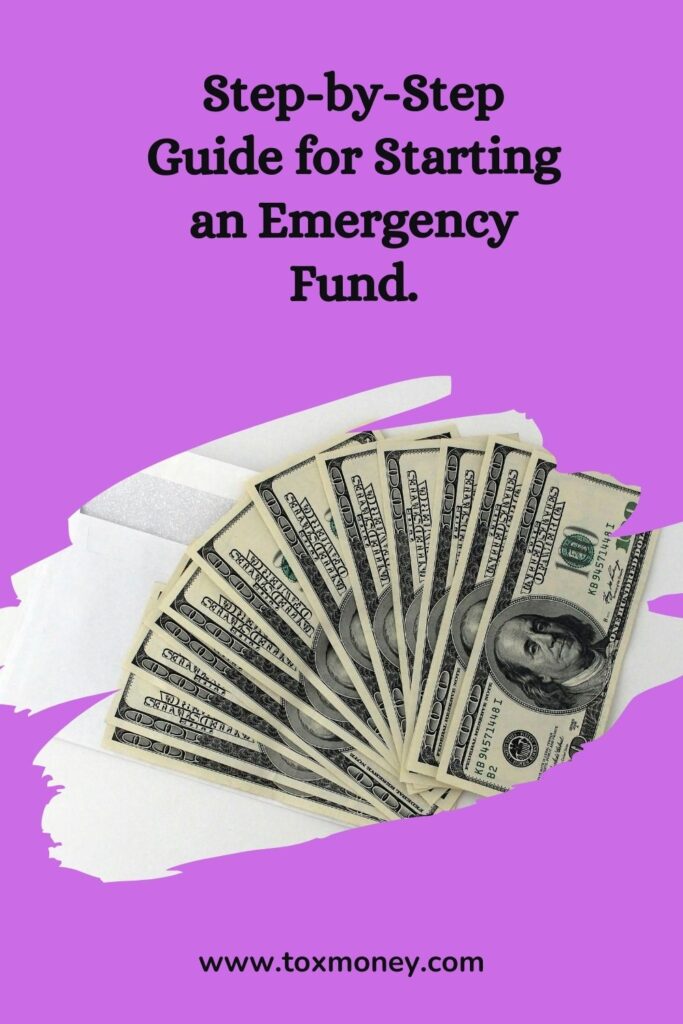Cash is nice, but it is not always convenient. You cannot use cash to make online purchases, and you do not want to carry thousands of dollars if you must make a significant buy.
Debit cards and credit cards are two easy methods to make payments without using cash. While they perform comparable functions, there are significant variances between them that make them appropriate for various contexts.
What is a Debit Card?
A debit card is a card that is linked to a bank account, usually a checking account. Some banks also provide debit cards linked to your money market or savings account.
You may use your debit card to make purchases straight from the associated account. If you go to a store and pay for something using your debit card, the retailer deducts the money immediately from your checking account.
You may also use your debit card to withdraw cash from ATMs. Many banks run their own ATM networks or have joined bigger ones. If you use an ATM outside of your bank’s network, you will normally be charged a fee to withdraw money.
See Also: 5 Reasons Not To Use Debit Cards When Shopping Online
What is a Credit Card?
A credit card allows you to access a line of credit provided by a lender. While a debit card allows you to conveniently access your own money, credit cards enable you to easily borrow money from a lender.
While debit cards are normally included with each checking account you create, you must expressly apply for a credit card from a bank or other card provider. When you apply, the lender will consider your credit score and financial details, such as your income, before deciding whether to issue you a card.
There is no assurance that you will be approved for a credit card if you have low credit or cannot demonstrate your ability to repay borrowed funds.
If you are authorized, the lender will assign you a credit limit, which is the maximum amount you may borrow at once. You may use your credit card to pay for items at stores, borrowing money from your credit card provider.
Each month, your card issuer will send you a bill. If you pay the debt in full, you will not pay any interest. You can also choose to pay only a portion of your bill. If you do this, you will be charged interest on the remaining debt.
Many credit cards impose an annual fee. They may also provide benefits like as incentives for every purchase, free hotel or airline status, or credits for certain purchases.
Key Features:
Debit cards and credit cards both allow you to pay for items without using cash, but in somewhat different ways. Understanding the distinctions is critical for understanding when to employ each.
1. Where Money Comes From
Both debit and credit cards allow you to swiftly and conveniently access funds to pay for goods. They also allow you to withdraw cash from ATMs.
Debit Cards
When you use a debit card, you are taking money straight from your bank account.
One advantage of this is that it might help you avoid overspending.
When you have cash in your wallet, you can see how quickly it empties as you use it. When you use a debit card, you may see your bank account balance fall with each transaction. This is a simple method to keep track of how much money you’re spending and avoid spending more than you have.
Credit Cards
When you use a credit card, you spend the card issuer’s money rather than your own.
Credit cards provide quick and easy access to a line of credit. If you just need to borrow a modest amount of money, going through the full lending process—applying for a loan, dealing with an underwriter, and waiting for the lender to release the funds—can be inconvenient.
If you have a credit card, you’ve already been approved to borrow up to your credit limit, so all you have to do is swipe it to make a transaction.
This might be problematic owing to the high interest rates charged by most credit cards, but having fast access to credit can come in handy in a hurry.
2. Costs
There are expenses associated with using a debit card or a credit card. Fees and other expenditures vary based on the type of card and how you use it.
Debit Card Costs
Debit cards offer an advantage in this situation since they normally charge lower fees than credit cards. Furthermore, because you are using your own money, there is no chance of incurring interest on your debit card purchases.
Overdraft fees are one of the most prevalent expenses you’ll encounter while using debit cards.
While debit cards are not intended to allow you to borrow money in the same way that credit cards do, some banks will allow you to spend more than the amount in your account. This is known as overdrafting your account.
For example, if you have $80 in your checking account and want to spend $100 using your card, your bank may accept the transaction. This results in an overdraft and reduces your account balance to negative .
Many banks charge a fee for this service, which further reduces your balance. In the case above, if your bank imposes a $15 overdraft fee, your account balance will be negative $35. You’ll need to deposit $35 to get your balance back to $0.
If your checking account balance is consistently low, you should monitor it to avoid overdrafts. You can also contact your bank to inquire about turning off overdraft services, which would allow you to avoid these penalties. (If you do not have overdraft protection, your $100 transaction will be refused since you only have $80 in your account.)
The only additional expenses associated with debit cards are ATM fees. Some banks will charge you a fee for using an out-of-network ATM.
Credit Card Costs:
Credit card expenses can vary greatly depending on the card and how it is used.
One of the most typical costs is the annual charge, which is a basic amount that you must pay each year you keep the card open. Many credit cards do not charge this cost, while many premium rewards cards charge large annual fees. The most expensive cards might charge $500 per year or more. If you don’t take advantage of the benefits credit cards provide, you will be paying the cost for no reason.
You may also have to pay fees when using a credit card in other instances. For example, if you want to send money to someone via a peer-to-peer app like Venmo, using a credit card usually incurs a fee, but debit cards are free.
In addition to these costs, there is also interest to consider.
Credit cards are a way to borrow money. Borrowing money requires paying interest. Credit cards are one of the most costly methods to borrow money.
Credit cards frequently charge annual interest rates of 10%, 15%, or even 20% or more. If you routinely pay your credit card’s entire balance before the due date, this will not be an issue. However, if you carry a load for even a month or two each year, you may end yourself paying a significant amount of interest.
3. How To Get One
If you don’t already have a credit or debit card, you should obtain one since they make it much easier to pay for significant purchases. They also make it easier to make transactions online.
The procedure of acquiring a debit card versus a credit card differs, and debit cards are often easier to obtain.
How to Get a Debit Card.
Nowadays, most people may easily obtain a debit card.
When you open a checking account, most banks immediately issue you a debit card. You do not need to do anything unusual to receive the card. It will arrive in the mail shortly after you establish your account and make your initial deposit.
If you have a weak credit score or a low income, you may be unable to obtain a credit card, making a debit card much more accessible.
How To Get A Credit Card
To obtain a credit card, you must apply for one. Credit cards are a tool for borrowing money, therefore if you want to receive one, you must first complete a loan application.
When you apply for a credit card, the credit card company will review your credit history and financial information to decide if you will be able to repay the money borrowed.
If you have bad credit or no credit record, it might be difficult to get accepted for a credit card. The same holds true if you do not have a steady salary. Before you may qualify, you must first establish credit and demonstrate proof of income.
4. Fraud Protection
Online fraud is an increasing issue. Someone making fraudulent charges on one of your cards is more of a “when” than a “if” situation.
Both credit cards and debit cards provide fraud protection, but they function differently.
Debit Card Fraud Protection
When you make transactions using a debit card, most banks include fraud protection. If someone steals your card information, your bank will normally not hold you accountable for the transactions.
The difficulty is that your debit card allows the person who holds it immediate access to your bank account. If the fraudster manages to spend $500 before you catch them and notify your bank, the money will have already left your account.
Most banks will compensate you for the money you lost, but the procedure of reporting the fraud and receiving reimbursement can be time-consuming. During that period, you are out of the money that was stolen from your account.
The bottom line is that if you can’t afford to be without that money for a lengthy period of time, fraud protection may be too sluggish to help you before you find yourself in serious financial trouble.
Credit Card Fraud Protection
Credit cards provide comparable fraud protection as debit cards. However, there is one significant distinction.
If someone takes your credit card information, they do not have direct access to your bank account. That means your money will remain secure in your bank even if the fraudster incurs debt in your name.
You won’t be left without a cent while you work with your card issuer to rectify the issue, which can make recovering from credit card theft easier than with a debit card.
Rewards
Credit cards and debit cards provide incentives and other advantages when used, making them enticing to those looking to recoup part of their spending.
Debit Card Rewards
Generally, debit cards do not provide benefits such as cash back or airline miles. This indicates that using a debit card instead of a credit card results in a loss of value.
However, this pattern may be changing. Some banks, particularly online banks and fintech businesses, have begun to provide prizes and other exclusive benefits for using a debit card.
Credit Card Rewards
One of the most compelling reasons to use a credit card is to receive rewards.
There are several sorts of reward credit cards. Some provide basic cash back, while others provide points, airline miles, or hotel loyalty points. Regardless of the rewards scheme offered by your credit card, utilizing it on a regular basis might help you earn big perks.
While some cash-back cards may only pay 1% on most purchases, many offer 5% or more on specific categories of purchases.
For example, the American Express Blue Cash Preferred card provides 6% cash back on grocery shop transactions. If you spend $5,000 a year on groceries, you’ll get $300 back this way, which is a significant amount.
Depending on the card you use, you can save money, receive free flights for your next vacation, get a free hotel stay, or earn other incentives simply by purchasing what you were going to buy anyway.
If you’re a very knowledgeable cardholder, you may use various cards based on where they earn the greatest points, allowing you to optimize your profits.
Should You Choose Debit or Credit Cards?
There is no one-size-fits-all solution when it comes to personal money. Choosing between a credit card and a debit card is no different.
When used appropriately, credit cards are a better option than debit cards. Credit cards provide superior consumer protections and cash-back incentives than debit cards if you choose a fee-free card and pay your debt in full every month.
However, if you struggle with budgeting or are concerned about credit card debt, debit cards or reloadable prepaid cards are probably a better option. Even a modest credit card balance can result in exorbitant interest rates, so it’s wiser to forego a small amount of cash back to prevent these expenditures.
Consider signing up for debit cards if…
Debit cards are better suited if:
You don’t qualify for a credit card. Most checking accounts come with a debit card as standard. If you can’t acquire a credit card for whatever reason, utilizing a debit card is the best option.
You utilize cash regularly. Debit cards allow you to withdraw cash from ATMs for free, provided you use an in-network ATM. If you use your credit card to take money from an ATM, you will be charged a cash advance fee.
You want assistance with budgeting. Budgeting with credit cards might be more difficult since you must keep track of both your checking account and your card balance. Overspending may be quite easy to accomplish. When you use a debit card to make a purchase, you simply need to keep track of the balance in your checking account.
Consider signing up for credit cards if…
Credit cards are more suited if…
You want to gain awards. Most debit cards do not give incentives, although many credit cards do. These incentives might help you save money or earn free flights and hotel stays.
You want consumer protection. Credit cards are usually the best option for significant purchases since they provide fraud protection and longer warranties.
You want to build credit. If you’re looking for a larger loan, such as a mortgage or vehicle loan, using a credit card is an excellent method to begin developing credit.
You need to borrow tiny sums of money for a short period. Debit cards allow you to access your own money, whilst credit cards provide you access to a quick and simple line of credit. If you need time to transfer funds between accounts before paying for something, credit cards provide a convenient option to borrow money for a short period.
Both are excellent if…
Debit cards and credit cards are great alternatives for…
You conduct a combination of cash and card transactions. There are advantages to using both cash and credit cards to make purchases. If you use both on a regular basis, keep a debit card on hand for ATM withdrawals and a credit card for card purchases.
You mostly make regular purchases online. When buying online, you’ll need to use a credit card. Both types of cards will do the job.
In Conclusion
Debit cards and credit cards are both convenient ways to spend money without having to deal with big quantities of cash. Simply swipe your card to pay for things.
Debit cards provide simple access to your own money, but credit cards allow you to borrow money from a lender. In general, credit cards provide numerous benefits such as cash back and consumer protections. However, you risk incurring significant credit card debt.
Most people will want to have access to both credit and debit cards, as they are useful in different situations.



